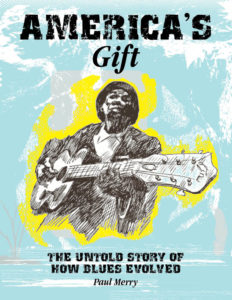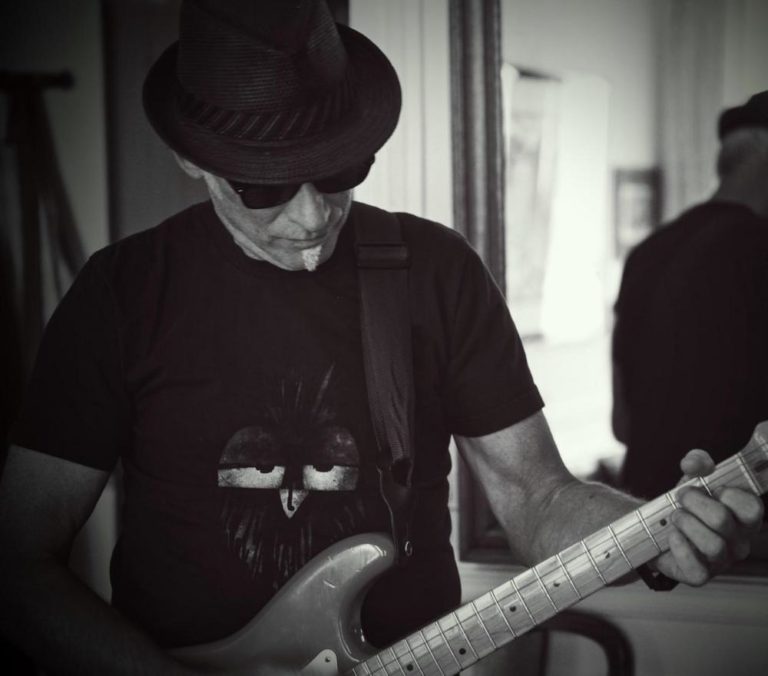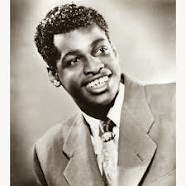The song that sparked the British invasion.
The song that inspired the British musicians who sparked the British invasion.
In July, 1955, a London Dixieland/trad jazz guitarist, Lonnie Donegan, recorded a speeded-up version of a 1930s American folk track, ‘Rock Island Line’, made famous by blues icon Lead Belly.

Donegan’s ‘Rock Island Line’ directly inspired a generation of British musicians, from the Beatles and Led Zeppelin to Pink Floyd and Queen, and everyone in between. If you can’t remember the British Invasion or have never heard of it, here’s a recap, courtesy of America’s Grammy Museum.
“American popular music experienced a seismic shift in 1964. That year, British bands launched what became commonly known as an “invasion” of the American pop charts and culture. Led by The Beatles, other British bands and artists such as the Rolling Stones, Donovan, the Dave Clark Five, the Kinks, the Yardbirds, the Searchers, the Animals and many more completely and dramatically affected the course of rock & roll in America. At no other time in the 20th century had American popular music been so jolted by foreign sounds and influences.”
Recording Academy Grammy Museum Exhibition, June, 2020. The British Invasion: How 1960s Beat Groups Conquered America.
Below is a clip of Lonnie performing ‘Rock Island Line’ but you’ve got to fast forward for well over a minute if you don’t want to hear his lengthy preamble.
https://www.youtube.com/watch?v=wI4nRD-DRpk&t=4s
In 1954, Lonnie Donegan began performing American folk and blues, in what they called ‘skiffle breaks’ during intervals with Ken Colyer’s jazz band. These were named after the 1940s U.S. group Dan Burley and his Skiffle Boys, in turn named after the black skiffle parties, held in the 1920s to help raise rent money. Dan Burley, incidentally, a journalist and barrelhouse pianist, reportedly coined the term ‘bebop’
Lonnie Donegan recorded ‘Rock Island Line’ just four days after ‘Rock Around the Clock’ made history by becoming the first rock and roll record to top the American pop charts in July, 1955. This seminal record, by U.S. rock band Bill Haley and His Comets, of course, was the catalyst that opened the door for all the rock and roll acts that followed. It was single-handedly responsible for rock and roll exploding across the world.
Lonnie Donegan’s ‘Rock Island Line’ started the British skiffle craze, which saw young musicians using traditional American folk and rural blues instruments such as tea-chest bass, a washboard and acoustic guitar. Donegan’s ‘Rock Island Line’ became the first British record to reach the U.S. top ten, making number eight. It also spent three months in the UK pop charts in early 1956, peaking at number six. As the BBC Music said:
“In January 1956, a new pop phenomenon appeared in the UK charts: a British artist playing the guitar. His name was Lonnie Donegan, and the song he sang was ‘Rock Island Line’. Donegan’s rough-and-ready style was at odds with the polished crooners who dominated the charts. He played the guitar in a way that sounded like anyone could do it. ‘Rock Island Line’ sounded like nothing else on radio, and it inspired a generation of British youths to pick up guitars and begin a journey that would take many of them to the top of the U.S. charts.”
BBC Music, Season 2019.
In the late 1970s, Lonnie Donegan was saluted by many of the British rockers he had inspired with a tribute album, ‘Putting on the Style’, on which he was backed by a band including Elton John, Ringo Starr, Queen guitarist Brian May and Rolling Stones guitarist Ron Wood.
As for ‘Rock Island Line’, the song was recorded by Lead Belly in 1937, for the U.S. Library of Congress, after he first heard it performed by convicts at an Arkansas prison concert in October, 1934. A recently-released former convict himself, Lead Belly was accompanying the famous musicologist John Lomax and his son Alan as their driver. Below is Lead Belly’s version of ‘Rock Island Line’.
https://www.youtube.com/watch?v=lCiJ4QQG9WQ
As Beatle George Harrison once said, “No Lead Belly, no Beatles.” George might also have said, no Lonnie Donegan, no Beatles, because Donegan directly inspired both John Lennon and Paul McCartney to take up the guitar and start their own bands. Indeed, their first group, The Quarrymen, was a skiffle group.

The Quarrymen skiffle group, courtesy the Paul McCartney Project.
But, contrary to what many think, Lead Belly didn’t write ‘Rock Island Line’. It was written by Arkansas engine cleaner Clarence Wilson in 1929 as part of a marketing campaign for the Chicago, Rock Island and Pacific Railroad. The company had encouraged employees to compose songs and sing in choirs to build brand awareness and loyalty in their communities.
Cleaner Wilson was part of the Rock Island Colored Booster Quartet, made up of workers from the Rock Island Line’s freight yards in Little Rock, Arkansas. The quartet would sing ‘Rock Island Line’ but never record it. Even the BBC is mistaken on this one. Its BBC Radio 2 website on January 2, 2023, has ‘Rock Island Line’ written by Kelly Pace, an ex-con who was the first singer to record it.
Originally a railroad song, by the time Lead Belly heard ‘Rock Island Line’, it had become a prison work song. Lead Belly then reworked it back to being a train song, recording ‘Rock Island Line’ with his oversized Stella 12-string.
Lead Belly helped John Lomax record an unreleased ‘Rock Island Line’ recorded by eight convicts led by the aforementioned Kelly Pace on September 29, 1934. Lomax then recorded the song by ‘Kelly Pace and Group’ again on October 2, 1934. Pace, a career criminal with a great voice, was out of jail for those two recordings. When Lomax recorded a third ‘Rock Island Line’ version in 1942, Pace was back in prison, serving a 42-year stretch for car theft. (You’d get less for murder.) Once again, Pace was star of the recording session, eventually contributing more than 30 performances to the archives of America’s Library of Congress.
Find more about early rock and roll and how the blues evolved by checking out my book America’s Gift where you see this cover. 





